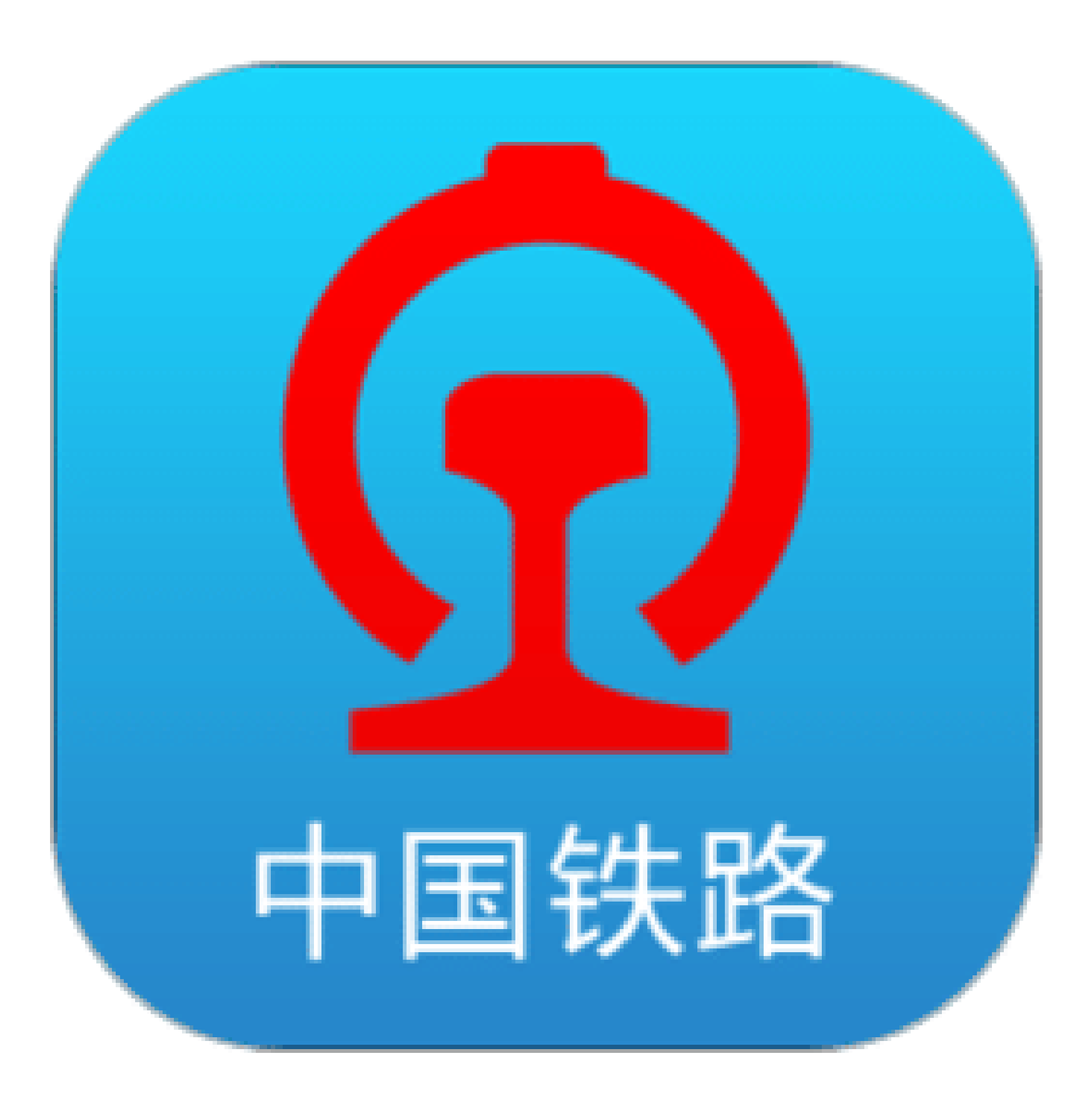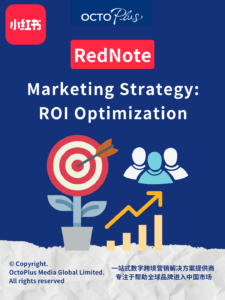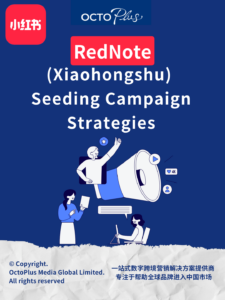China Marketing Insights Monthly Newsletter [June 2020]



Hello,
Welcome to our June Newsletter.
Chinese tourists are slowly regaining their confidence in domestic & eventually in international travel. When borders open, Chinese travellers will be first to travel, and peak recovery time is expected to arrive after September with bookings that seem to even out at the same slopes as last year – just in time for Golden Week.
In this issue, we look at several issues about fraud & censorship – Miaozhen insights report about invalid traffic; Weibo censorship; self-censoring of ads by Huya & Douyu; and the crackdown on e-commerce click farming (not in the way you think).
We take a special look at the rise of private traffic and how marketers can effectively use this marketing channel to enhance their campaigns and feature Bilibili – the Chinese equivalent of Youtube – in our app of the month.
Finally, no June issue would be complete if we did not include round-up & analysis of 6.18 – mid-year sale. This year is turning out to be another record-setting with over 1 trillion RMB worth of e-commerce sold.
From all of us here at OctoPlus Media, wishing you and your family good health and safety.
Sincerely,
Mia C. Chen
CEO & Co-Founder of OctoPlus Media

INSIGHTS REPORT - MIAOZHEN INVALID TRAFFIC REPORT
Miaozhen Systems recently released a new report – “China Digital Advertising Invalid Traffic Report in 2019” – to examine the invalid traffic in China. Data was collected from 65,000 campaigns of 2,000 brands across 1,200 platforms including ads on PC, Mobile, TV, offline, OOH and KOL marketing.
Invalid traffic costs China advertising an estimated 4 Billion USD, Miaozhen system has helped its clients save over 600 Million USD via its advanced filtration products.
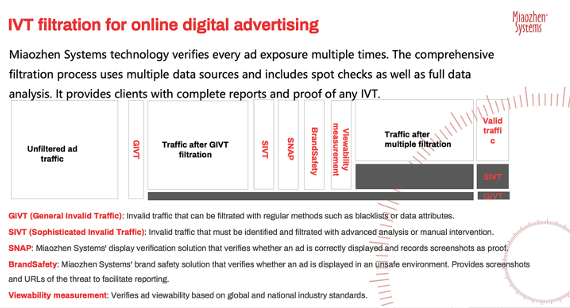
Key Findings:
- Invalid traffic (IVT) made up 31.9% of all digital advertising traffic in China, up 1.7% from 2018
- 9% of vertical media traffic was invalid; IT verticals had the highest IVT rate at 49%, up 14% from 2018
- Across industries, internet and communications saw the greatest IVT increase (up 6.3% from 2018) and suffered the highest IVT rate
- 10% of NEW TV ad traffic was invalid; agencies contributed the most invalid exposure
- 26% of all online consumer sales leads were invalid, with major implications for auto and other industries that rely on online lead collection
- 2% of outdoor advertising was invalid or not displayed
- 48% of social media advertising traffic was invalid. On average, 57.5% of KOL fans were invalid, with baby & mom KOLs having the highest rate of invalid fans (65.1%)
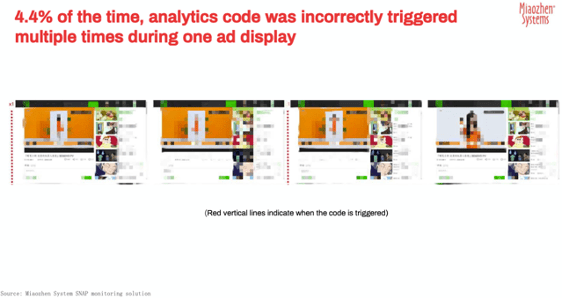
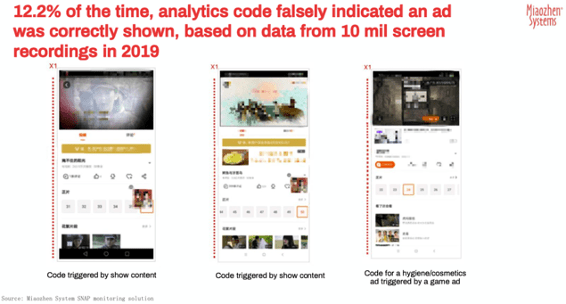
How is invalid traffic captured? Miaozhen has various tools to help -SmartVerify – China’s most mature and advanced IVT measurement and filtration solution. It uses AI and machine learning to process multiple data sources, assisting clients in identifying, analysing, and filtering out invalid ad behaviour.
SNAP – captures screenshots of online ads and uses image recognition to verify that the ad was correctly displayed. SNAP complements analytics code by modelling user behaviour and filling a gap in the current approach to ad verification.
Other solutions include BrandSafety; Viewability; Leads Verify; SocialMaster.
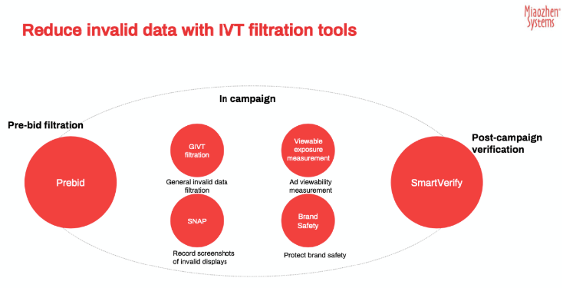
We use Mioazhen tracking as default for all campaigns unless specified otherwise. Contact us to learn more about how this can be used for your campaigns.
Or subscribe to Miaozhen WeChat by scanning the code on the right.
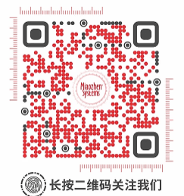

CHINA'S VIDEO PLATFORM BILIBILI TO LAUNCH A SATELLITE TO PROMOTE SCIENCE, THE PROCESS WILL BE BROADCASTED LIVE ONLINE.

On June 1, 2020, China’s popular video sharing platform Bilibili announced that it would launch a remote sensing satellite named “Bilibili Video Satellite” in late June for the production of popular science content. Bilibili Video Satellite will be China’s first video remote sensing satellite customised by an internet company if successfully launched. An official account has been launched on the Bilibili platform, where there will be a live broadcast of the entire process on the day of the satellite launch (Live Link). So far, the official account has attracted 327,000 followers, received 946,000 likes, and with over 6.1 million video views. (Video link)
Bilibili (https://www.bilibili.com/) nicknamed “B site”, started in 2009 as a website specialising in sharing anime’s, pictures and videos. It is also one of the leading online entertainment platform, which attracts Generation Z, which is becoming the main force of recreation and culture consumption. Bilibili has a unique content positioning focusing on ACG (anime, comics, and games). In particular Japanese anime, manga and video games. In Chinese, this type of content is referred to as 2nd-dimensional space (二次元). It’s one of the reasons that the younger users are attracted to it.

Bilibili Users:
Bilibili users are mainly young, accounting for 78% of users between 18 and 35 years old, and the proportion of male and female is 57:43. MAU have reached 172 million, Y-O-Y increase of 70%. Average mobile MAU increased by 77% to 156 million, and DAU increased by 69% to 51 million.
Bilibili Content:
PGC (Professionally-generated Content), UGC(User-generated Content), AMV(Anime MV) and Game area, etc.
Bilibili Platform Value:
The platform has a high retention rate of users, with average daily video playback of 730 million, an average monthly user interaction of 2.5 billion, and an average daily usage time of 87 minutes.


WHAT IS "PRIVATE TRAFFIC"? WHICH IS POPULAR DURING EPIDEMICS? HOW TO MAKE USE OF "PRIVATE TRAFFIC"?
1. What is Private Traffic?
First, we need to understand what Public Traffic is. Public traffic is open to everyone, such as offline traffic, BAT(Baidu, Alibaba, Tencent)traffic, like WeChat, QQ, Tmall, Taobao, Baidu, Douyin, Kuaishou, Weibo, JD, Toutiao, Pinduoduo, etc., and platforms that are relatively in silos but also have plenty of traffic, such as Zhihu, Jian Shu, Baby tree, Xiaohongshu, etc.
For Private Traffic, it is a controllable traffic pool based on the “public traffic” platform. Let’s take WeChat as an example, for each WeChat public account, WeChat group and WeChat personal account, fans and friends are “Private traffic”, as these can be independently operated and maintained by the account owners who have WeChat public group, and personal account.
Private traffic is mainly for the management of user relationships. According to the level of the relationship, it can be divided into 4 levels (from low to high):
4th Tier: Fans
- The lowest rated “private traffic” are fans on social accounts such as WeChat public accounts, Weibo, and Toutiao. This is the initial level of “private traffic”, but also the lowest-rated level of the trust relationship.
- Fans-type “private traffic” – Where information received is one-way, relying on operators to continue output of content to maintain retention, and the conversion effect will be better if the content matches the interest of fans. This is also the operating logic of the WeChat public account (WeChat Subscription Account Mainly)
3rd Tier: Fans
- The next level of “Private traffic”, are WeChat and QQ groups, who do not necessarily know each other but come together on common hobbies and interests.
- Community-type “private traffic” – The information received is multi-directional, and the degree of trust is higher than the ordinary fans, and through the continuous engagement and interaction within the community such as group activities, group discussions, group live broadcast, etc. improves conversion.
2nd Tier: Friends
- A deeper level of “Private traffic” than a community is direct friend relationships, mainly WeChat friends. Because WeChat is the most important instant messaging tool in China at present, and it includes the majority of social relationships.
- Friends-type “private traffic” is the most discussed type of “private domain traffic” at present. The main reason is it has the highest degree of trust and the best conversion effect because friends communicate directly and frequently, and trust is the key element. As long as solid operations and regular product recommendations are maintained, there will be good monetisation benefits.
1st Tier: CRM
- Official website, independent App, WeChat service account, mini programs, individual shops, individual accounts and community operating tools, etc. are captured by a CRM system to record browsing behaviour of users, registrations, login, the setting of appointments, usage, payments, etc. A management system automatically labels each of these actions, and comprehensive personalised marketing is generated. It is the best conversion tool in this era of “traffic anxiety”.
2. How to make use of “Private Traffic”?
The operational steps of “Private Traffic” are Referral traffic > Fission > Convert > Purchase > Repurchase. In this process, fission is considered to be the most characteristic marketing method. There are 2 key steps for fission; step 1 is designing a complete mechanism to close the loop (sharing—convert); step 2 is giving enough incentive to cooperate.
Common Fission Methods:
Group Buying
Group leader and members purchase product at a price lower than the original. Suitable for the product with a higher repurchase rate and low unit price.
Unlock
Buy at a low price, such as first-class product, and invite friends to make the same purchase, this unlocks the rest of the products.
Distribution Sale
Users generate invitation posters to purchase products, and a commission is paid-out when friends purchase through the invitation posters.
Bargain
Users may bargain on their own or invite friends to participate until the target price is achieved (e.g., 1RMB) before a purchase is made.
During the epidemic, e-commerce mini programs turned customers into their own “sales staff” by offering a commission and achieving good results in the form of Distribution sales. Currently, the most popular method is “mini program + live streaming + private traffic (community + friends)”, which generates rapid purchases and orders.
The most common form of live streaming is one of the private communities. In recent years, tens of thousands communities were accumulated. The following are private community cases based on referral traffic for different live streaming campaigns.
SaSa Hong Kong (WeChat group of Beauty, Shopping and Parenting)
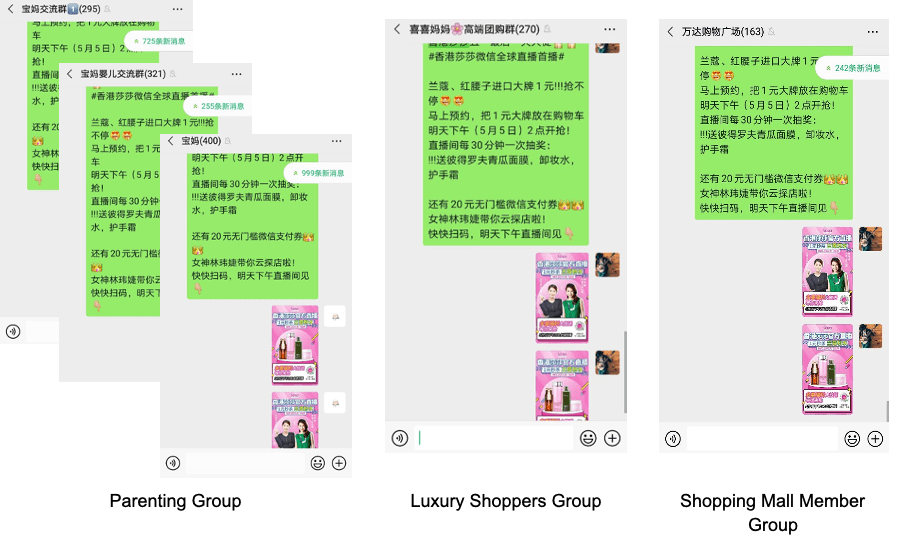
Mead Johnson Hong Kong (Group of Mothers)
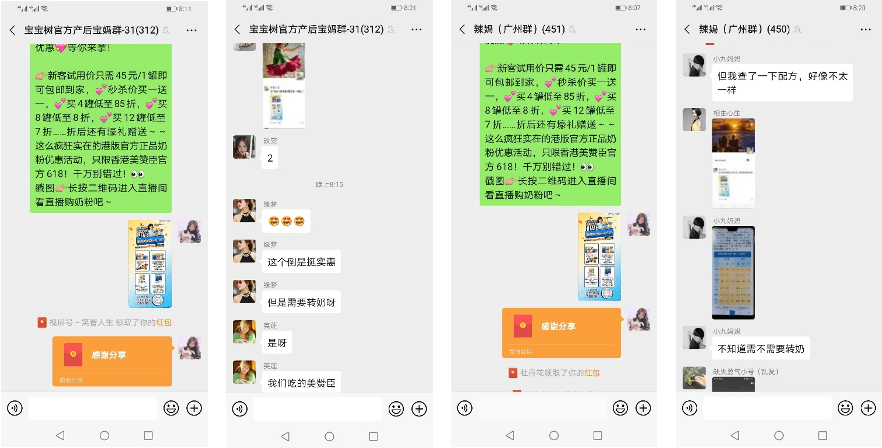
Parenting Group
Hong Kong University of Science and Technology
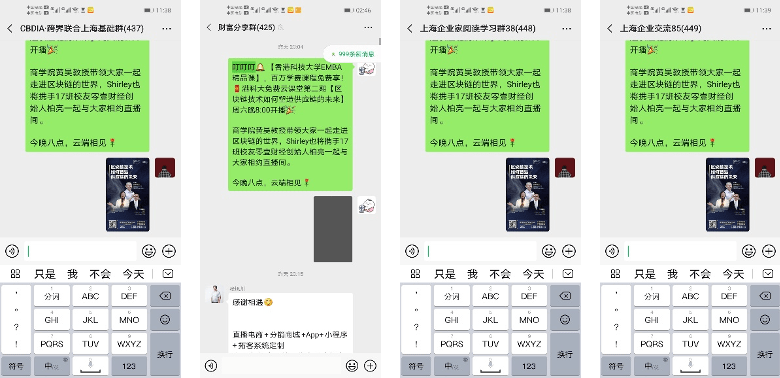
High-level Entrepreneur Community
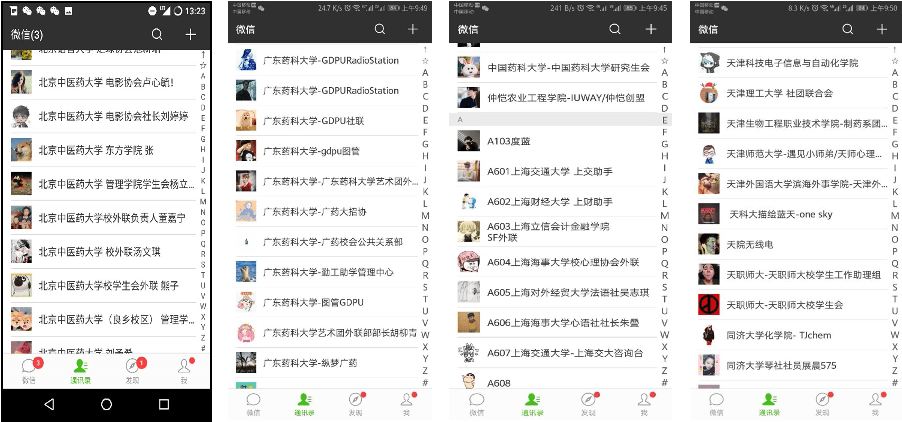
College Community & College KOC/KOL Resources
Contact us for a better understanding of live streaming traffic and utilisation of WeChat’s private traffic.

WEIBO PUNISHED WITH TEMPORARY LOSS OF “HOT SEARCH” AND “HOT TOPIC” LISTS FOR 1 WEEK, INTERNET SUPERVISION HAS BEEN TIGHTENED.
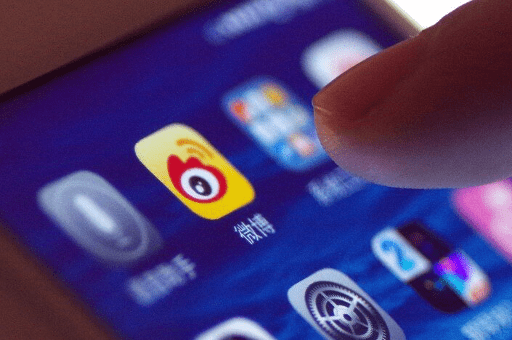
Weibo, one of China’s largest SNS platforms, announced on June 10, that it was shutting down its “hot search” and “hot topic” lists in accordance with orders from the nation’s internet regulator. That’s a blow to the platform’s business, as Weibo’s rankings are important for brands, celebrities, and KOL seeking to measure the impact of the marketing campaigns they’re involved with, and it comes in the midst of the major 618 Shopping Festival.
The shutdown will run for a week, as required by the Cyberspace Administration of China (CAC), which posted on its official WeChat account that Weibo had interfered with communications orders and distributed illegal information, among other issues. The regulator also said it was seeking a fine in the case.
Without providing further details, CAC mentioned a case involving Tmall and Taobao president Jiang Fan, a possible reference to a scandal that unfolded on Weibo when the wife of Jiang Fan, who was president of Alibaba’s Taobao and Tmall divisions, published a post telling top KOL Zhang Dayi to stay away from her husband, drawing speculation of an affair between Zhang and Jiang (he was demoted soon after). The post comments were turned off on Mrs Jiang’s Weibo account, and the juicy gossip she spilt did not make it to the list of top searches and hot topics.
Alibaba is Weibo’s second-largest shareholder, with a 30% stake. Obviously, Weibo is manipulating public opinion behind the scenes in order to cover up the scandal. It also reflects that online information is easy to be manipulated by the promotion platform. Such behaviour also makes the brand passive when judging whether the information is true, accurate and fair. It’s not the first time Weibo’s hotlists have been targeted. In early 2018, they were also suspended for a week amid allegations of obscene content and other illegal activities.
In March 2020, Weibo MAU reached 550 million, and average DAU reached 241 million. Weibo has become one of the important channels for the public to get information in the era of mobile internet, and the hot search list has also become the main platform for netizens to discover hot social content and participate in discussions.
The original intention of the hot search list is to reflect the attention and direction of Weibo users on hot content, but, many hot searches, such as with the word “recommended”, are all priced commercials. A media survey found that many merchants operating the “Weibo marketing” business said that they could let the specified vocabulary appear in the designated position of the hot search list as long as they pay a certain fee.
However, CAC did not ignore this, but instead gave punishment which stopping the hot search-this is the embodiment of the official declaration of sovereignty in the online public opinion. For the brand PR team, it is recommended to reduce such operations, but to change the marketing thinking, and follow the legal and formal marketing method to promote brand image, to avoid falling into the same PR dilemma.
CHINESE LIVE STREAMING GIANTS HUYA AND DOUYU HAVE REMOVED GAMING ADS TARGETING STUDENTS FROM THE EDUCATION SECTIONS OF THEIR APPS FOLLOWING CRITICISM FROM STATE MEDIA
On June 8, CCTV News publicly criticised Live streaming giants Huya and Douyu for promoting online games to students through “free online courses”. In the past few months, online classes have been the main way for Chinese students, Huya and Douyu rolled out its learning section and providing live technical support and free online classes for teachers and students. The game ads have removed from the education sections of their apps following criticism from state media.
Both Huya and Douyu are bullet screen interactive live-streaming platforms mainly for game, providing video and game live-streaming services for users, with over 200 million users, large user scale and high popularity in China. The criticism of Huya and Douyu by Chinese state media reflects the government’s increasing censorship and regulation of live-streaming platforms.

TAXES ARE ALSO REQUIRED TO OPERATE E-COMMERCE! CLICKS FARMING (FAKE TRANSACTIONS) WILL ALSO HAVE TO PAY BACK TAXES FOR THE PAST THREE YEARS
In June 2020, China State Taxation Administration carried out unannounced inspections of online stores on multiple e-commerce platforms like Taobao, Tmall, JD, etc. According to bigdate, owners of online stores are required to repay taxes and corresponding late fees for the three years from 2017 to 2019 following the Alipay transaction credit (all transaction amounts in the store). In other words, the store owner also needs to pay taxes for false transactions (clicks farming).
The problem of tax payment in the field of e-commerce has a long history. One of the major difficulties is that the turnover is difficult to grasp accurately and the lack of transparency of the data. Today, the tax department obtains online sales data through big data technology, and strengthens cooperation with the platform to obtain complete e-commerce platform data, deepens cross-system and cross-industries for tax cooperation, and shares information resources among multiple departments. Finally, found that partial businessman in 2017 ~ 2019 to declare the sales revenue and sales of E-commerce platform stats income differences, and there is a risk of underestimating the sales revenue.
Many E-commerce merchants have received prompts issued from the tax department, and asking them to make up for the tax for “Click farming”.
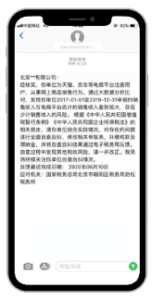
Clicks farming is a way to inflate their transaction volume, create false ratings, reviews. This creates more popularity to attract customers, which is a fake transaction. The government’s measures have caused mad “clicks farming” e-commerce owner to suffer heavy losses. On the other hand, the national tax department now takes advantage of big data, optimises new tax management models, and combats fraudulent transactions. On the other hand, the China State Taxation Administration will take advantage of big data, and optimise the new tax management model, and the crackdown on fake transactions, which will maintain the order of the e-commerce market.
Source: https://finance.sina.com.cn/chanjing/gsnews/2020-06-14/doc-iirczymk6859466.shtml
618 DATA REPORT - ALIBABA & JD.COM WRAPS UP CHINA'S NATIONWIDE MID-YEAR SHOPPING FESTIVAL 2020 WITH TRANSACTION VOLUME RMB 698.2BN & RMB 269.24BN DURING THE PANDEMIC PERIOD
The “618 Shopping Festival” has officially ended successfully. As the first national shopping festival during the pandemic period, all brands are striving to return to the market. There is also good news from China’s e-commerce platforms: The transaction volume from Tmall and JD has reached 698.2 billion RMB and 269.2 billion RMB respectively, they set new records both. Among them, Tmall corporate with more than 120k brand to distribute worth 14.96bn RMB coupons and subsidies, and the sales increased by 100% Y-O-Y in 1 hour; JD sales volume increased by 66.7 billion from last year, Suning sales volume increased by 132% Y-O-Y in 1 hour; Pinduoduo sales volume increased by 136% Y-O-Y. These figures indicate that the Chinese consumer market has recovered.
According to the report from Baidu, It shows that this year’s “618” search popularity has risen against the trend and hit a five-year high. Besides, searches for “618” bucked the trend this year, hitting a five-year high, and netizens are searching for “618” about 10 days earlier than usual this year. “Live-streaming with goods”, which has witnessed explosive growth in the pandemic, has become one of the highlights of 618 shopping festival this year.
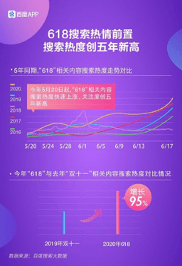
The report of Tmall 618 shows that from the scale of the consumer group, the four first-tier cities in Beijing, Shanghai, Guangzhou and Shenzhen are the largest. In contrast, the merchants in the coastal cities in the southeast have the highest enthusiasm, Guangzhou ranks first, and Hangzhou, the e-commerce city, ranks third.
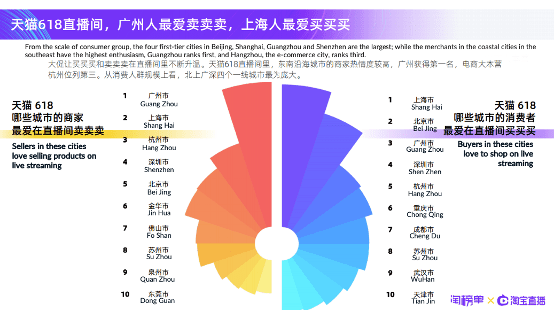
According to the report from Data Story, it shows that: The personal care product is a relatively high category in Taobao live streaming except Beauty product, the tissues are the most popular products because discounts attract consumers; In terms of anchors, It still headed by Weiya Viya and Li Jiaqi Austin, with 975,195 and 678,204 products sold respectively.
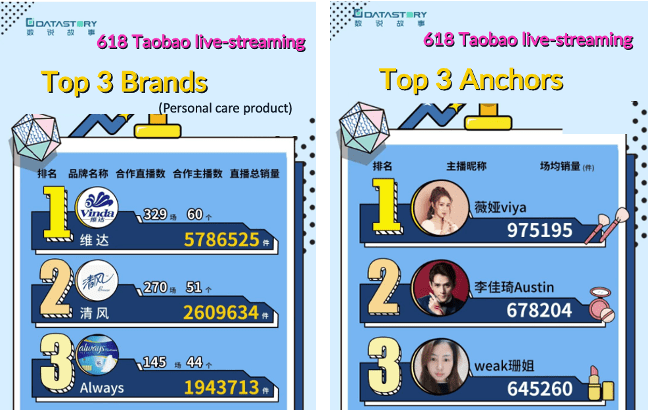
-End of the Newsletter-
Feel free to talk to us
It’s a team with one single shared goal, which is our client’s success. Deliver results for your business now.























